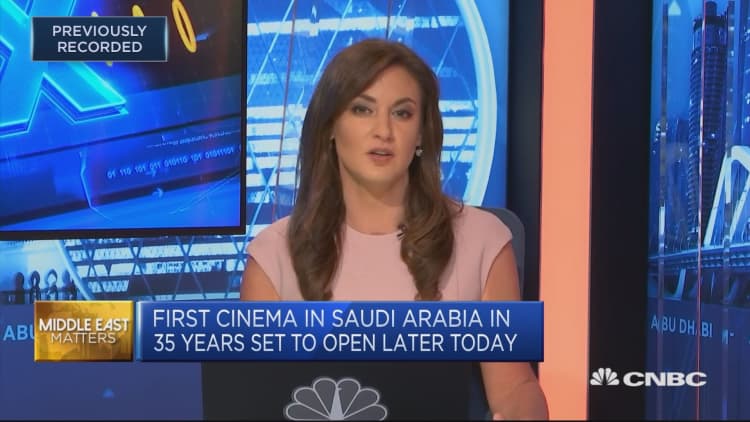Saudi Arabia is known for many things, but theme parks aren't one of them. Now, as part of the conservative Islamic kingdom's drive to diversify its economy away from oil, the government has unveiled plans for an "entertainment city," aimed at attracting tourist dollars and revamping its international image.
The massive project, which will span 207 square miles in Qiddiya, southwest of the capital Riyadh, joins a stream of multi-billion dollar projects that are part of the country's "Vision 2030" reform initiative to attract investment, reduce its economic reliance on oil and create jobs.
The expansive "entertainment city," funded mainly by Saudi Arabia's Public Investment Fund, would "rival Walt Disney" local media quoted Saudi officials as saying, and is set include high-end theme parks, safari grounds and motor sports facilities.
Saudi Arabia's King Salman will launch its construction on April 25, and it is planned for completion in 2022. Details regarding foreign investment and total cost have not yet been disclosed.
A national rebrand attempt
Numerous social and economic reforms are being implemented in Saudi Arabia by the kingdom's 32-year-old Crown Prince Mohammed bin Salman, who said in a statement, "This city will become, by God's will, a prominent cultural landmark and an important center for meeting the future generation's recreational, cultural and social needs in the kingdom."
Vision 2030 aims to see annual domestic spending on culture and entertainment increase from the current 2.9 percent of total household expenditure to 6 percent by 2030. And international investors may have a lucrative role to play — U.S.-based theme park operator Six Flags has already been in discussions with the Saudi government since 2017 over plans to build parks in the kingdom.
Bin Salman recently toured the U.S. on a PR blitz and met with Silicon Valley giants and corporate leaders including Facebook's Mark Zuckerberg and Disney CEO Bob Iger, promoting his government's projects to attract foreign investment. The prince has been the recipient of both praise and intense criticism for a range of bold moves including lifting the ban on females driving in Saudi Arabia, as well as a bloody and prolonged bombing campaign over Yemen, the region's poorest country.
Other projects in the kingdom include NEOM, a new city that will serve as an economic and tech hub between Egypt, Saudi and Jordan — an estimated $500 billion investment whose first phase is set for completion in 2025.
Most of the country's major projects are funded in large part by its sovereign wealth fund, though a growing budget deficit and low oil prices give some observers reason to question the projects' viability. Oil-exporting countries have been searching for ways to develop alternative revenue sources since the global slump in oil prices in 2014.
Just last week, Saudi Arabia opened its first movie theater in 35 years, in a move both economic and symbolic. It's hoped to boost domestic spending on entertainment and leisure, while also signifying a move toward greater social liberalization in a country heavily controlled by religious laws. Still, strict Islamic rules on gender segregation, dress and behavior will likely test the limits of these new reform efforts.



